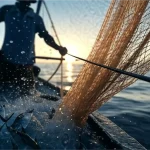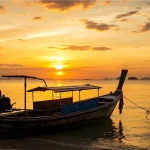In an increasingly noisy and hyper-connected world, finding time for true solitude has become a rare luxury. For many anglers, solo fishing trips offer that precious opportunity. They provide the space to escape routine, unplug from digital distractions, and immerse yourself in the calming rhythms of nature. Whether you are an experienced fisherman or someone seeking peace and personal reflection, solo fishing trips deliver a unique experience that nurtures both body and mind.
Why Fish Alone?
Fishing alone is a deliberate choice to step away from the chaos. Without companions, you are free to fish at your own pace, explore new spots, and spend as much time as you want at your favorite location. There is no pressure to entertain anyone else or stick to a group schedule. It is a chance to reconnect with yourself, to practice patience, and to experience the meditative flow that comes from being alone with your thoughts.
Solo fishing fosters self-reliance. You learn to read the water, choose your gear, troubleshoot problems, and manage your catches all on your own. These small victories create a sense of accomplishment and build confidence that carries over into other areas of life.
Choosing the Perfect Solo Fishing Spot
Not all fishing locations are equally suited to solo trips. Safety, accessibility, and variety of fish species are important factors to consider. Lakes, rivers, coastal beaches, and even small creeks offer excellent options. Choose a location you feel comfortable navigating alone. National parks and state parks often have well-maintained trails and designated fishing areas, which are ideal for solo anglers. Remote spots can offer more solitude, but they require extra preparation and caution.
Consider starting with locations you have fished before. Familiar territory minimizes the chance of unexpected challenges and allows you to focus on relaxing rather than worrying about directions or hazards.
Safety First
Safety should always be a top priority when fishing alone. Always let someone know where you are going and when you plan to return. Carry a fully charged mobile phone or GPS device. Pack a basic first-aid kit and know how to use it. If fishing from a kayak or small boat, always wear a life jacket.
Be aware of wildlife, tides, and weather conditions. Check forecasts before heading out and keep an eye on changing conditions while on the water. Avoid taking unnecessary risks; no fish is worth endangering your safety.
What to Pack for a Solo Fishing Trip
Packing efficiently is crucial. Without a buddy to split supplies, you need to be self-sufficient. Bring the essentials:
Rod, reel, and tackle box with hooks, lures, and extra line
Polarized sunglasses to cut glare and spot fish more easily
Sunscreen, insect repellent, and a wide-brimmed hat
Water, snacks, or even a packed lunch
A small cooler if you plan to keep your catch
Camera or smartphone for photos (or to document your catches)
Binoculars if you enjoy birdwatching during breaks
Lightweight folding chair or cushion for comfort
Travel light but be prepared. The less you carry, the more freedom you have to explore, but forgetting essentials can quickly turn a peaceful outing into frustration.
The Mental Benefits of Solo Fishing
Solo fishing is as much about the experience as it is about catching fish. It offers a rare opportunity to practice mindfulness. The act of casting, reeling, and waiting for a bite can become deeply meditative. As your focus narrows to the line and the movement of the water, outside worries fade away.
Studies have shown that spending time in nature reduces stress, lowers blood pressure, and improves mood. The combination of physical activity and mental focus that fishing provides makes it one of the most effective outdoor therapies.
Listening to Nature’s Silence
Silence in nature is never truly silent. When fishing alone, you become attuned to the subtle sounds around you—the splash of a fish breaking the surface, the call of a bird in the distance, the whisper of wind through reeds. These gentle sounds replace the constant background noise of cars, devices, and human conversation. It is a sensory detox that allows your mind to rest.
This awareness also sharpens your angling instincts. Noticing the faint movement of your float, the soft tug on your line, or the ripple of a fish approaching becomes second nature. You become fully present, living entirely in the moment.
Solo Fishing for Skill Development
Without distractions, solo fishing trips are perfect for improving your skills. You can try different casting techniques, experiment with various baits and lures, and practice reading water currents and fish behavior. Mistakes become learning experiences, and each success is wholly your own.
This focus on self-improvement can dramatically boost your angling abilities. Many experienced fishermen swear by solo trips as the most effective way to become a better, more observant angler.
Photography and Journaling
Solo trips are also ideal for documenting your experiences. Bring a camera to capture the scenic beauty of your surroundings or to photograph your catch. Keep a small fishing journal to record details like water conditions, weather, bait choices, and fish activity. Over time, this logbook becomes a valuable resource for planning future trips and tracking your personal growth as an angler.
Enjoying a Leisurely Lunch
One of the simple pleasures of a solo fishing trip is the freedom to eat when and where you like. Pack your favorite picnic, find a shaded spot with a great view, and enjoy a peaceful meal without interruptions. Eating outdoors with the sights and sounds of nature surrounding you is a uniquely calming experience.
When Solo Fishing Turns into Wildlife Watching
A solo day by the water often brings unexpected encounters with wildlife. You may spot deer, foxes, otters, or even eagles and ospreys diving for fish. These moments of shared silence with animals are unforgettable and add richness to your fishing adventure.
Bringing binoculars enhances the experience. Use the quiet periods between casts to scan the horizon or treetops for birds and animals. It is yet another way to slow down and appreciate the beauty of the natural world.
Respecting Nature
Leave no trace. Clean up any trash, old fishing line, or bait containers. Be mindful of local regulations, respect catch limits, and practice catch-and-release when appropriate. Solo anglers can set the best example for others by maintaining pristine waters and landscapes for future generations to enjoy.
Solo or Not?
Solo fishing doesn’t have to be an all-or-nothing pursuit. Many anglers alternate between solo outings and group trips. The peaceful solitude of fishing alone complements the camaraderie of fishing with family or friends. Each offers unique rewards.
For newcomers, starting with a short solo trip close to home is a great way to build confidence. As your comfort grows, consider exploring more remote or challenging waters.
Conclusion
Solo fishing trips offer a unique blend of serenity, adventure, and self-discovery. They encourage you to slow down, reflect, and truly appreciate the natural world. Whether you seek the satisfaction of mastering new angling skills or simply long for a day of peaceful quiet away from modern life, fishing alone provides one of the most rewarding outdoor experiences you can find.
So pack your gear, choose your favorite spot, and head out on your own. The silence will welcome you, the water will calm you, and with every cast, you’ll reconnect with both nature and yourself in ways that few other activities allow.



